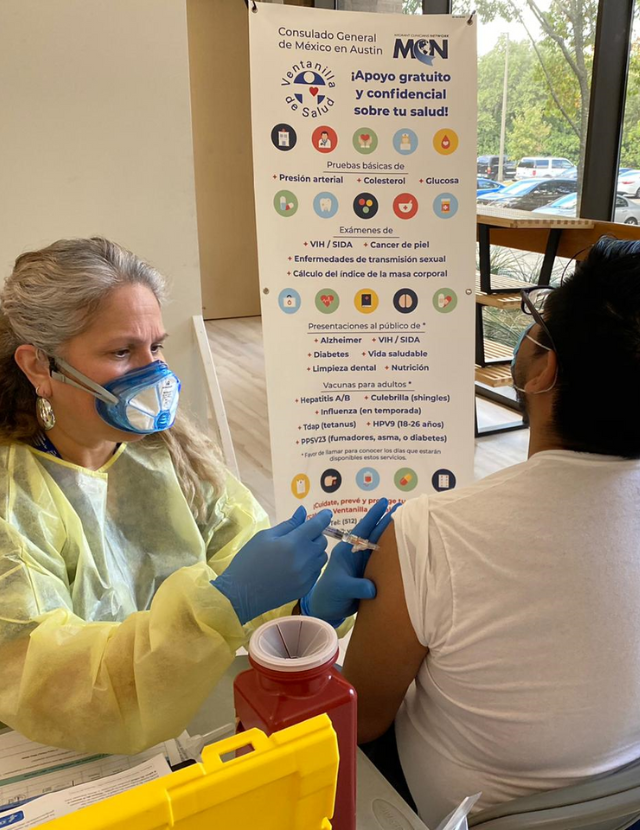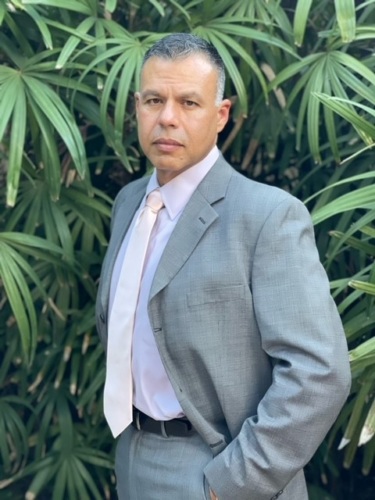Increasing Access to COVID-19 Vaccines: How Trusted Messengers Cultivate Interdependence and Break Through Barriers
Program
Highlights

The Migrant Clinicians Network, a partner working with PHI's Communities RISE Together, understood the increasing importance of multiple groups coming together and the different ways of working collectively, with the end goal of increasing access and uptake of COVID vaccines.
220 counties in 27 states where Communities RISE works on the ground with community-based partners
-
Focus Areas
Health Care & Population Health, Healthy Communities -
Issues
Workforce Development -
Strategic Initiatives
COVID-19, Vaccine Access & Equity
Working with PHI’s Communities RISE Together, Migrant Clinicians Network (MCN) saw how interdependence amplified and took on new meaning during the pandemic. “The way Soma [Saha of the WIN Network] has attacked the project is phenomenal,” said Moises Arjona Jr., an MCN contractor and program manager. “She is so in tune to everyone’s needs, sensitivity, and understanding culture—not just as one culture, but seeing it as a whole. It was a different format for understanding we are all assets and have skills we can apply to a project. We also spent time understanding the barriers, why they were there, and how we could work with them. When we stepped back, we realized there was a different way of working to accomplish our goal of getting people vaccinated.”
MCN supports health care workers on the frontlines in addressing the social determinants of health among underserved communities like migrants, immigrants, refugees, and food and farmworker communities. They link clinicians to migrant workers, but during the pandemic, one person—the person the workers trusted most—would play an essential role to the interdependence critical to getting workers vaccinated: The lider.
In migrant communities, the most trusted messengers are called lideres, translated to “leaders” in English, but better described by Arjona as “community champions.” The lider is the one person in every migrant community whom everyone goes to for help. He or she is the volunteer voice of the workers, a recognized leader from within the community who understands their language, culture, and issues and the importance of advocating on their behalf. Lideres are entrusted to liaison with farmers, local law enforcement, and hospitals. They fight for better conditions for the workers and guide them from one location to the next. They are resilient, with strong civic muscle, working to create belonging among migrant workers and families. When MCN’s work pivoted to COVID-19 vaccination awareness and access, the lideres were instrumental.
Arjona and his colleagues quickly realized myths and mistrust of government had created barriers to vaccines. Latinx people also have had experiences being mistreated by the medical community, similar to the legacy of Tuskegee. In some communities, there was hostility toward anyone promoting vaccines.

We had to get to the people who knew what was going on in the communities. What were the issues we didn’t know about? We contacted some people ourselves, but they didn’t know who we were. Once we went through the lideres, there was trust.Moises Arjona Jr.
Migrant Clinicians Network Contractor and Program Manager
The funding MCN received through RISE was in turn provided to the lideres and their community partners, who are typically not compensated, demonstrating that their work was valued.
“The lideres were key for MCN to hyper-focus on the assets that were already available in the community and their ability to reach people that traditional systems like the public health department can’t, said Migrant Clinicians Network Contractor and Program Manager Moises Arjona Jr. “Making contact and providing them and their partners with the money to do the work has been one of the biggest things. It’s building trust with those partners and allowing us to reach more people.”
The partners reached by the lideres know the needs of the community and often work at food pantries, clothing drives, and back to school drives—places trusted by the migrant workers. They were the assets and the pathways to support the task at hand, agreeing to open their events and locations to clinicians and local public health departments to offer vaccines. “Getting everyone on board to do the job was not easy,” said Arjona. “We needed everyone working together toward the same goal, and that is what our partners are doing. Now we are able to share successes and barriers with others.”
One of the successes was the extension of belonging that Arjona witnessed: African American communities and Latinx communities reaching out to each other when they held vaccination events. “They understand that each one of them plays a part in our community and that everyone has a skill set,” he said. “And they see that it’s in all of our best interests to be vaccinated and continue to grow together.”
Work With Us
You change the world. We do the rest. Explore fiscal sponsorship at PHI.
Support Us
Together, we can accelerate our response to public health’s most critical issues.
Find Employment
Begin your career at the Public Health Institute.
